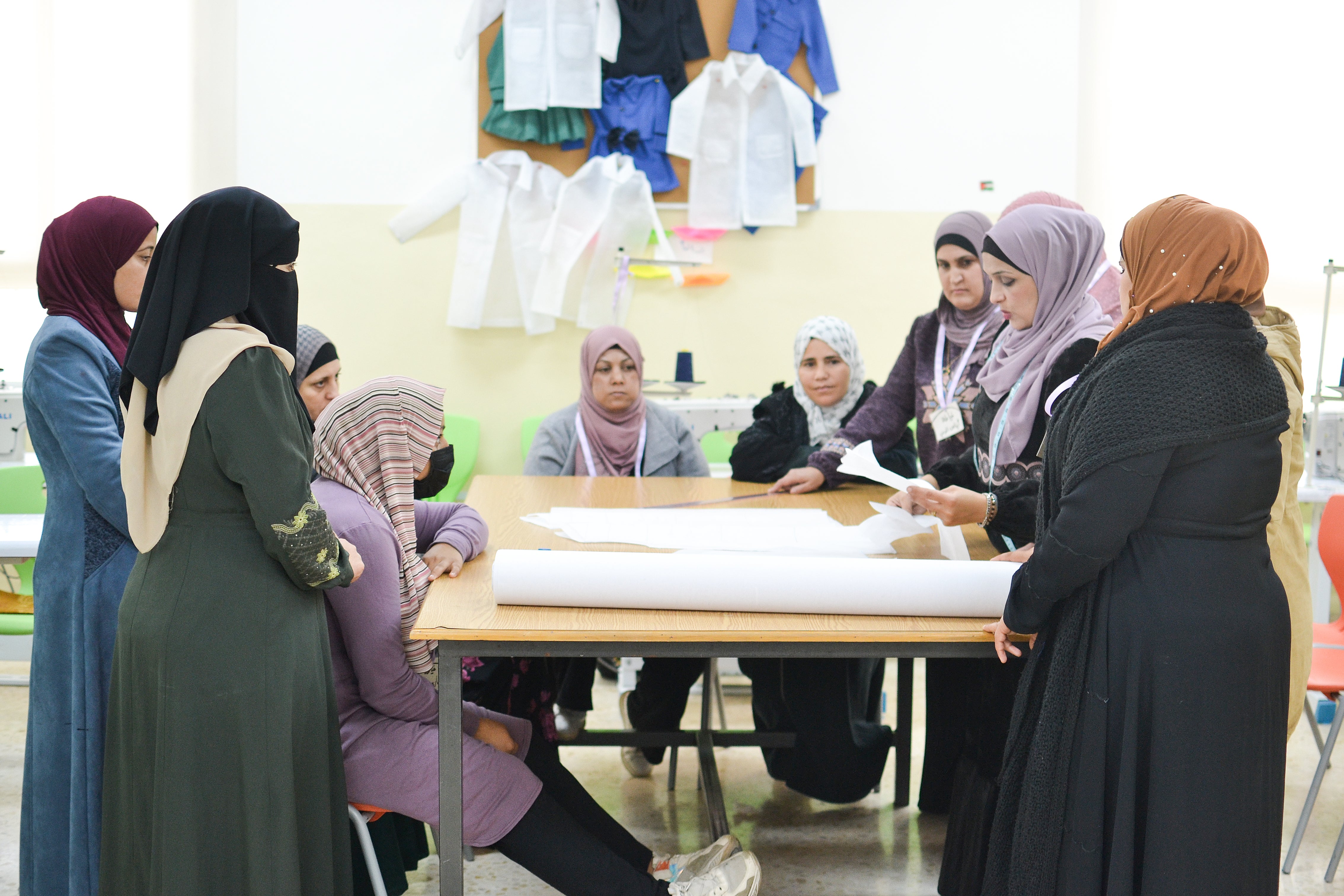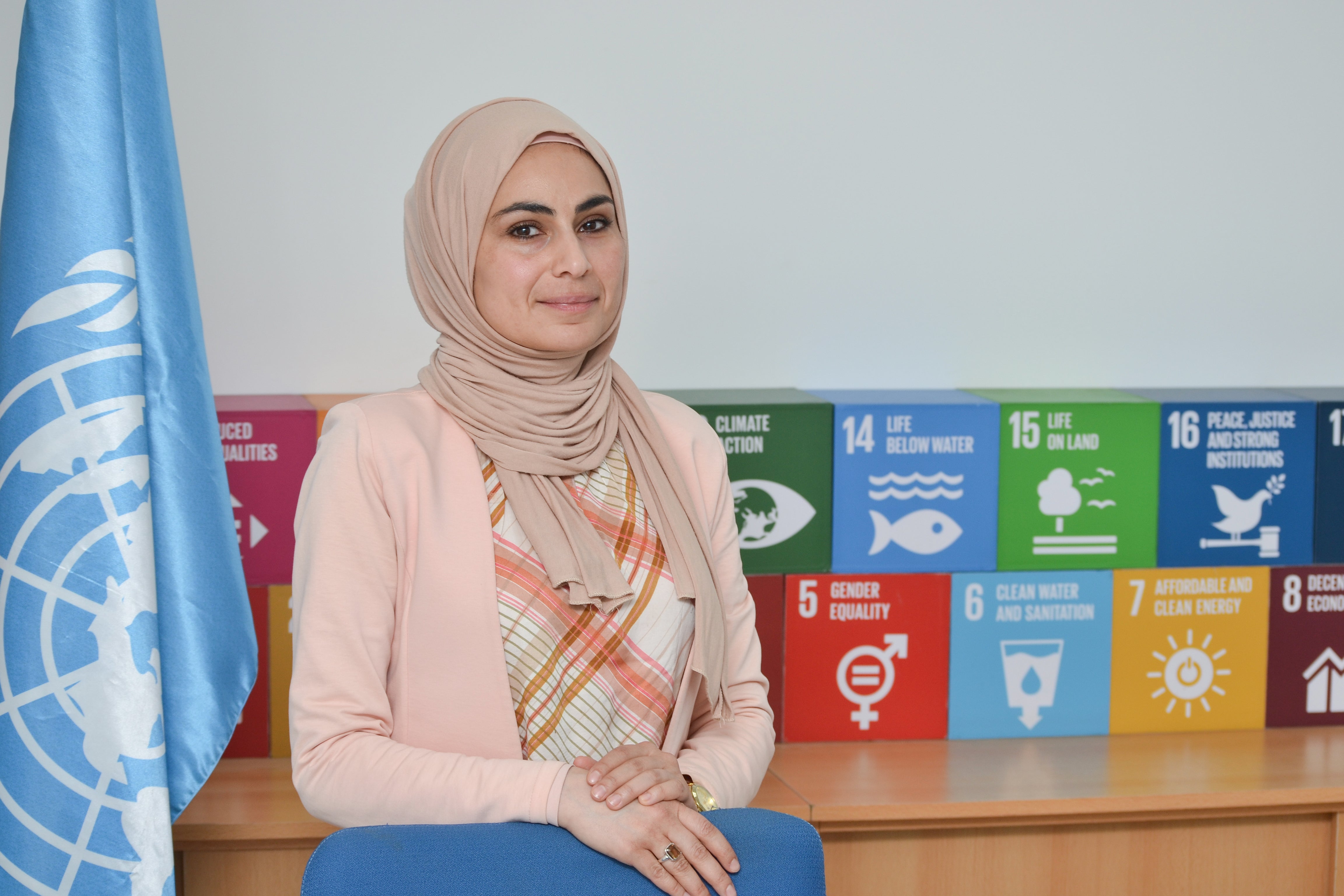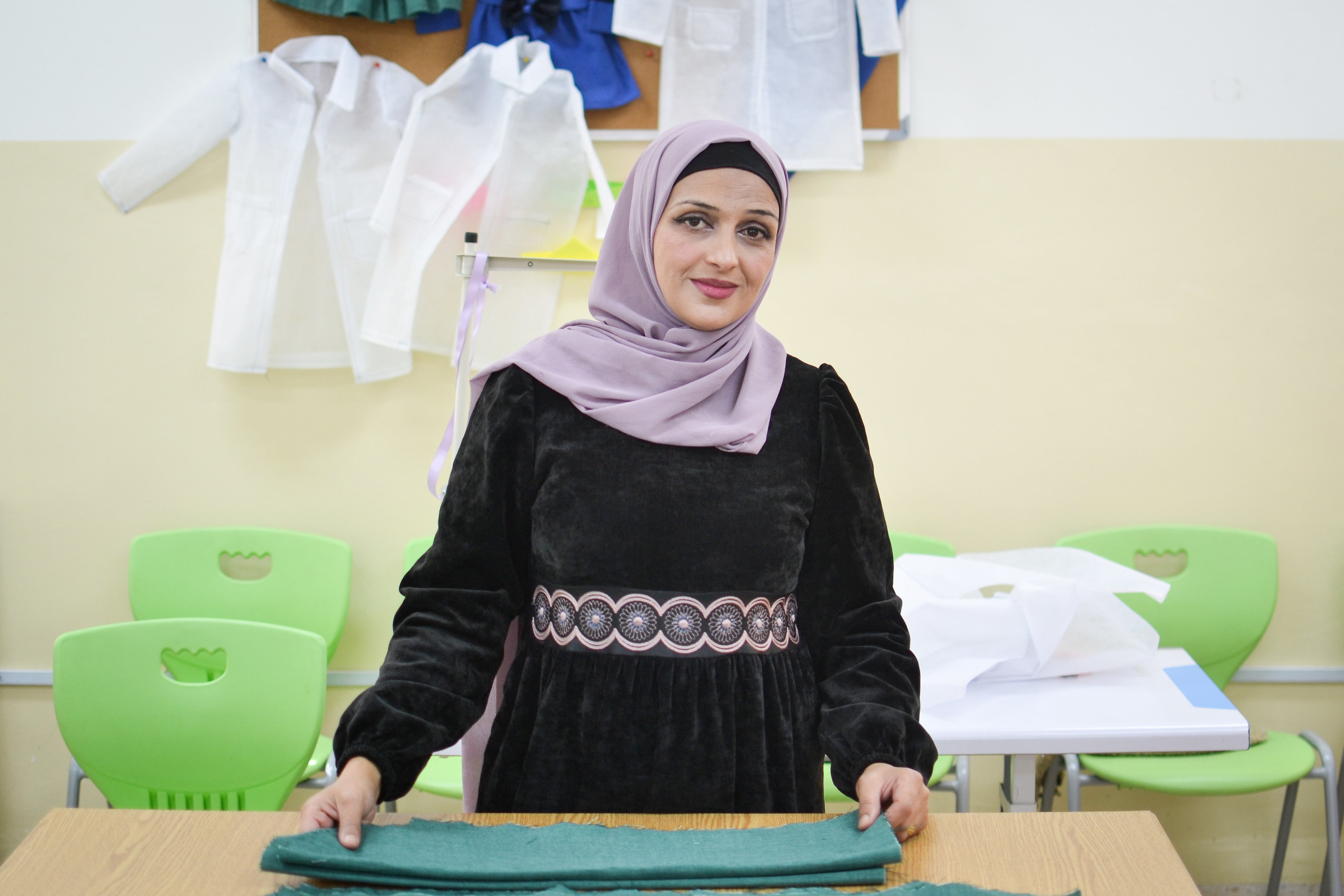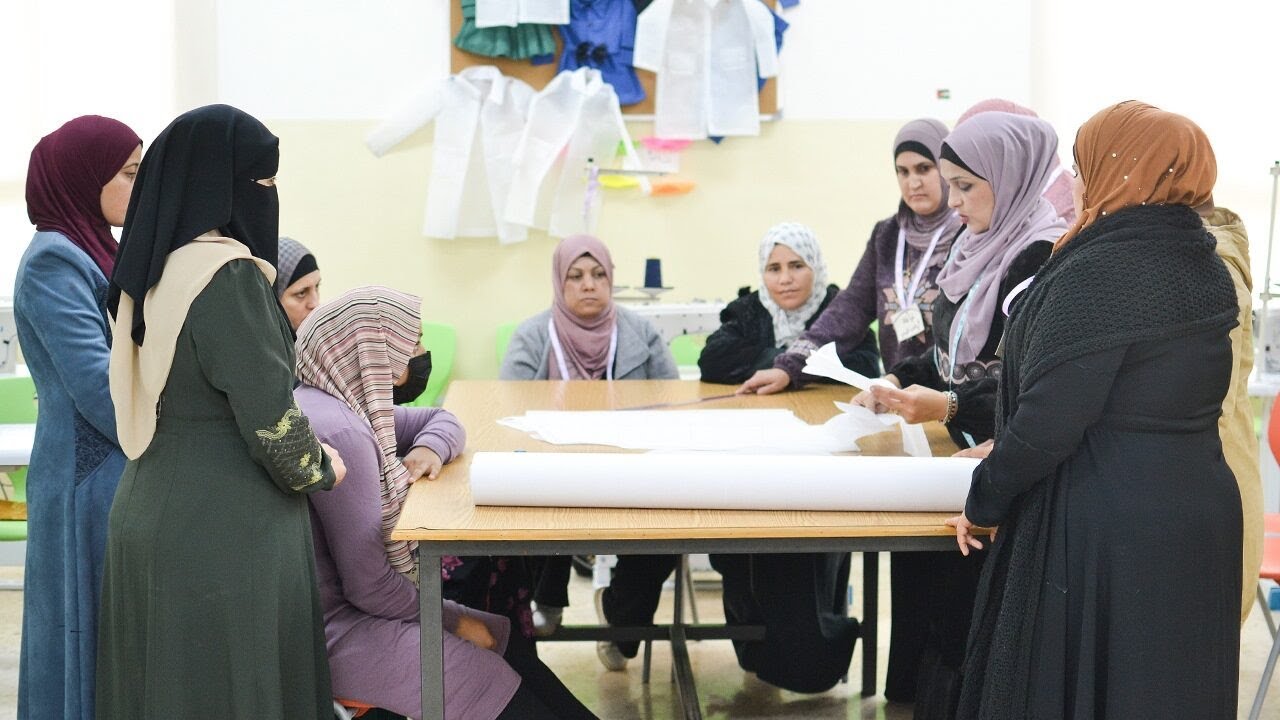UN Women Jordan's Oasis Programme: Transforming Lives, Empowering Women
Date:

In the heart of Jordan, UN Women's Oasis programme embodies the spirit of this year's 16 Days of Activism theme: "UNITE! Invest to prevent violence against women and girls." Nidal Al-Hajjaj, the Programme Manager, and Hadeel Qunaibi, the Protection Officer, along with Najwa Abu-Zaalan, a beneficiary turned trainer, paint a vivid picture of empowerment and transformation.
Since its inception in 2012, the Oasis Model benefiting women and children in Jordan. It is a testimony to the effectiveness of holistic, gender-responsive humanitarian action.
The Oasis Model has notably enhanced its reach, establishing a total of 22 centres that have significantly empowered over 30,000 individuals, predominantly Syrian refugees, and vulnerable Jordanian women, including a substantial number with disabilities. Recognized for creating safe, inclusive spaces, these centres have provided crucial cash-for-work, skill development, and early childhood services. UN Women's female-centered approach has notably advanced refugee women's economic autonomy and self-confidence, driving the program's relevance to national response efforts.
The program's success is further reflected in its contributions to social cohesion and gender sensitization within communities, integrating critical feedback to refine and augment its impact continually.
Nidal's Visionary Leadership
Nidal Al-Hajjaj, the Programme Manager of the Oasis initiative, saw the potential for change in 2012. What began with four centres expanded to 18 in host communities and four in camps by 2021. The program's multifaceted approach, covering livelihood, protection, leadership building, and education, reflects Nidal's responsibility in fostering an environment conducive to transformative investments in women.
"Our aim is to enable women to participate in the labour market, confront societal violence, and emerge as leaders," Nidal states. The monitoring tools attest to enhanced capabilities and resilience, illustrating the broader societal impact of the program.
Jordan's strategic position in the Middle East adds to its significance in maintaining regional stability. The current economic crisis, aggravated by the COVID-19 pandemic, threatens social cohesion and increases poverty and insecurity. This situation is exacerbated by a decline in humanitarian funding, which has historically supported both refugees and vulnerable Jordanian communities.
In response to these challenges, UN Women is continuing its effort for Oasis Model aiming to empower women and support community cohesion by bringing together Syrian refugee and Jordanian women funded by the European Union through the Regional Trust Fund in Response to the Syrian crisis, the Madad Fund and the governments of Canada, Australia, Finland, France, Iceland, and Italy, in partnership with the Jordanian Ministry of Social Development, echoes the impact of the Oasis centre on women's lives. This initiative focuses on addressing gender barriers, promoting economic empowerment, and enhancing protection against gender-based violence. The Oasis model aligns with various national and international frameworks and contributes to several Sustainable Development Goals (SDGs), including Gender Equality (SDG 5), Decent Work and Economic Growth (SDG 8), Reduced Inequalities (SDG 10), and Peace, Justice, and Strong Institutions (SDG 16). This approach is seen as vital for maintaining social stability and addressing the economic and humanitarian needs of the most vulnerable groups in Jordan.
Hadeel's Commitment to Protection

Protection Officer Hadeel Qunaibi sheds light on the integral role the Oasis programme plays in providing a secure haven for women. Through interactive workshops and awareness sessions, women engage with human rights, gender-based violence, and protection mechanisms, all aligned with this year's activism theme.
"The Oasis centres offer a safe space where women voice concerns and gain positive coping strategies," says Hadeel. It's more than workshops; it's about community integration, creating an effect of empowered women equipped to face life's responsibilities.
Najwa's Tale of Personal Triumph

Najwa is another proof to the positive impact the Oasis programme leaves on women’s lives. She shares her journey from beneficiary to trainer. Her six-month tailoring course not only elevated her skills but became a catalyst for financial independence and self-confidence. Najwa's story mirrors the theme of this year's activism: investment leading to transformative results.
"I encourage all women to participate and improve their financial situation," Najwa passionately expresses. Her entrepreneurial venture, that started from the Oasis centre in Ajloun - Jordan, clearly shows the tangible impact on financial stability and self-sufficiency.
16 Days of Activism this Year
In the realm of Oasis, the ripple effect of empowerment is noticeable, creating a hub for resilience, leadership, and self-discovery for women across Jordan. As the Oasis programme continues to unfold, it stands as a testament to the power of investment in preventing violence against women and girls. The 16 Days of Activism resonate within the Oasis narrative, highlighting the urgency to unite and invest in transforming the lives of women and girls.
